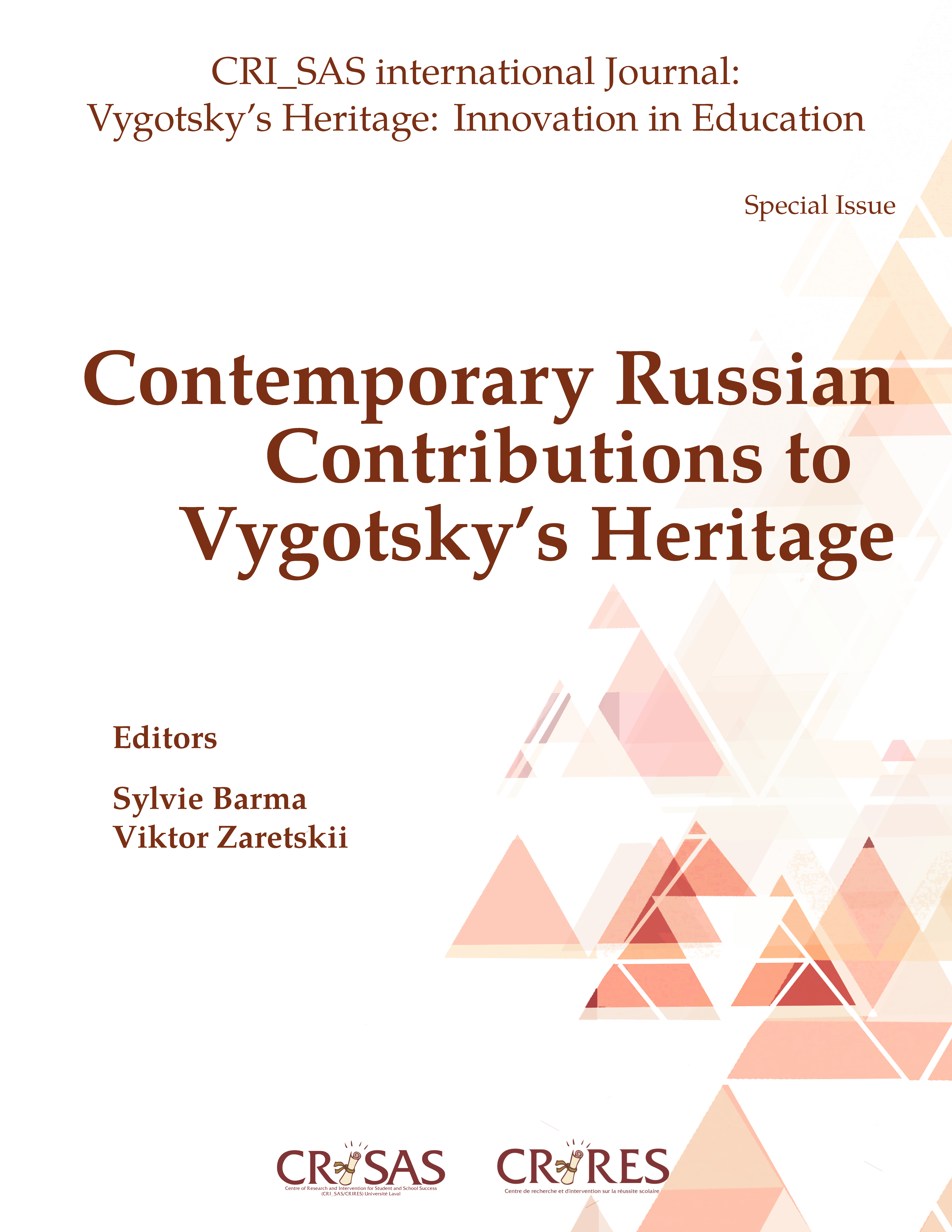Cultural-Historical Scientific School: The Issues That L. S. Vygotsky Brought Up
DOI:
https://doi.org/10.51657/ric.v4i1.40990Keywords:
Cultural-historical scientific, The change of social situation, The change of human activity, The zone of proximal development, Social interactions and learning, Collective activityAbstract
The report highlights the fundamentals of L.S. Vygotsky’s cultural-historical theory and discusses the system of concepts of this scientific school. The report analyses L.S. Vy-gotsky’s approach, according to which the basis for the development of human psyche is created by a qualitative change of the social situation or, in A.N. Leont’ev’s terms, by a change of human activity. The importance of intelligence and emotions, which are inter-nally connected, is demonstrated in relation to the change of human activity. The role of social interactions in learning and development of children is discussed referring to the challenges of the “new school”.
References
Davydov, V. V. (1995). Report on the international conference: “Cultural-historical approach: Development of humanities and education”. In Last talks (pp. 30–35). Moscow: Experiment.
Davydov, V. V. (2000). Types of generalization in instruction: Logical and psychological problems in the tructuring of school curricula. soviet studies in mathematics education. Moscow: Russian Pedagogical Society.
Griffin, P., & Cole, M. (1988). A dialogue with future through today’s activity cognition and communication. Science, 189–207.
Leontiev, A. N. (1981). The problem of activity in psychology. In J. V. Wertsch (Ed.), The concept of activity in soviet psychology (pp. 140–162). New York: M. E. Sharpe.
Luria, A. R. (1932). The nature of human conflicts. New York: Liveright.
Pyzirei, A. A. (1986). Cultural-historical theory of L. S. Vygotsky and contemporary psychology. Moscow.
Rubtsov, V. V. (2008). Social’no-geneticheskaya psychologiya razvivayushego obrazovaniya: deyatel’nostniy podchod [soci-genetic psychology of developmental education: Activity approach]. Moscow.
Rubtsov, V. V., & Guruzhapov, V. A. (2016). Designing the master research program taking into account the results of approbation and implementation of the professional standard of the teacher. Psikhologicheskaya nauka i obrazovanie [Psychological Science and Education], 21(2), 12–21. doi: 10.17759/pse.2016210203
Rubtsov, V. V., Martin, L. M., & Hall, M. J. (1991). Learning in children: Organization and development of cooperative actions. New York: Nova Science Publishers.
Vygotsky, L. S. (1978). Mind in society: The development of higher psychological processes. Cambridge: Harvard University press.
Vygotsky, L. S., & Sacharov, L. S. (1998). Research on the formation of concepts: Method of double stimulation. Issue III. Subject of cognition. General Psychology.
Wertsch, J. V. E. (1985). Culture, communication and Vygotskian perspectives. Cambridge: Cambridge University press.
Downloads
Published
Issue
Section
License
Copyright (c) 2017 Vitaly V. Rubtsov

This work is licensed under a Creative Commons Attribution-NonCommercial-NoDerivatives 4.0 International License.

